Tokyo Tech hosted the InfoSyEnergy Workshop for Education and Research Collaboration on September 30, 2022 with the joint support of the InfoSyEnergy Research and Education Consortium and the Tokyo Tech Academy of Energy and Informatics (ISE). The annual workshop offered another fruitful opportunity for registered ISE students to present the content and findings of their recent research, conduct exchanges with consortium members, collaborative institutions, and other co-hosting organizations at Tokyo Tech, and seek potential partners for joint research in the future.
The in-person component of this hybrid workshop, the third of its kind, was held in the Environmental Energy Innovation (EEI) Building on Ookayama Campus. Forty-eight participants, 42 of whom were students, joined the event on site. Another 45 participants joined the workshop online. This was the first time for students to participate face to face in the event since the founding of ISE.
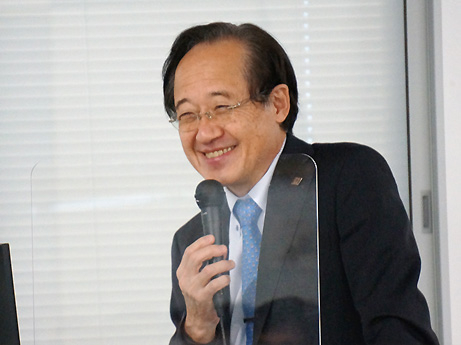
Tokyo Tech President Masu offering first in-person greeting to students since founding of ISE
To kick things off, Tokyo Tech President Kazuya Masu addressed the participants with an opening greeting. After this, Professor Manabu Ihara, head of the InfoSyEnergy Research and Education Consortium and director of ISE, reported on the recent activities of the consortium. Professor Yusuke Shimoyama from the School of Materials and Chemical Technology, the chairperson of the workshop, also explained the aim of the event before this year's guest speakers started their lectures.
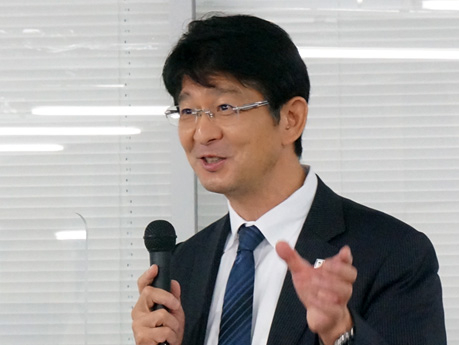
Prof. Ihara outlining activities of ISE and consortium
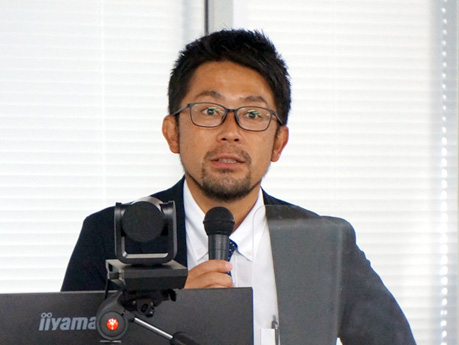
Chairperson Shimoyama explaining aim of workshop
The first guest speaker was Tokyo Tech Vice President for Global Communication Nobuyuki Iwatsuki, who is also a professor at the School of Engineering and an ISE advisor. He highlighted the programs and activities of the Tokyo Tech Academy for Super Smart Society (SSS), and introduced ways in which the Super Smart Society Promotion Consortium collaborates with this academy.
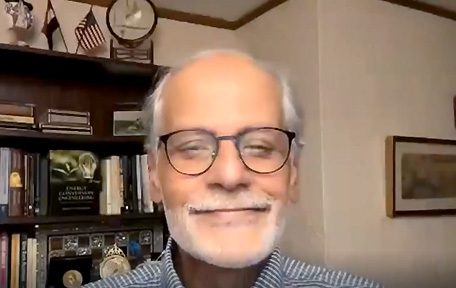
MIT's Prof. Ghoniem during his online keynote speech
During his keynote speech, Ronald C. Crane Professor of Mechanical Engineering Professor Ahmed Ghoniem from Massachusetts Institute of Technology (MIT) spoke about "Efficient Solar Thermochemical Green Hydrogen and Syngas Production." He highlighted some problems concerning hydrogen as a clean energy source and introduced thermochemical application technology as a solution. He outlined a reactor train system that utilizes solar energy storage and residual heat, and the thermochemical oxygen pump mechanism used in the system.
After this, three members of the InfoSyEnergy Research and Education Consortium -Kawasaki Heavy Industries Ltd., Deloitte Tohmatsu Consulting Co., Ltd., and IHI Corporation - spoke to students about their efforts in achieving carbon neutrality and introduced their business activites from the perspective of energy and informatics.
During the students' session, participants were divided into two halls to present their research findings to the audience. Fellow students listened intently to the enthusiastic presentations on various research fields such as energy carriers, energy systems, device systems, livestock energy, and other future technologies.
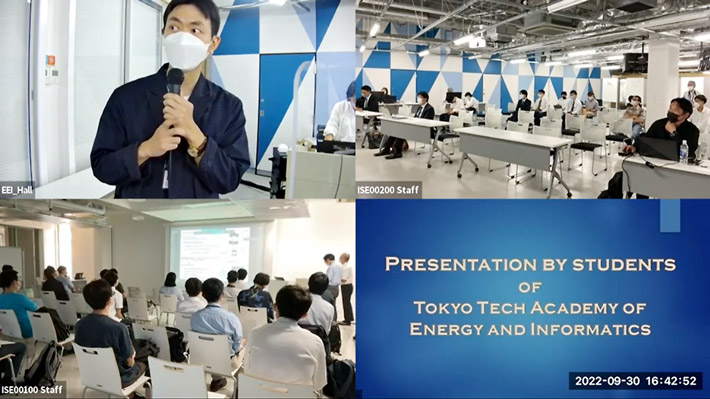
Hybrid students' session delivered from Innovation Hall and Midorigaoka Hall on Ookayama Campus
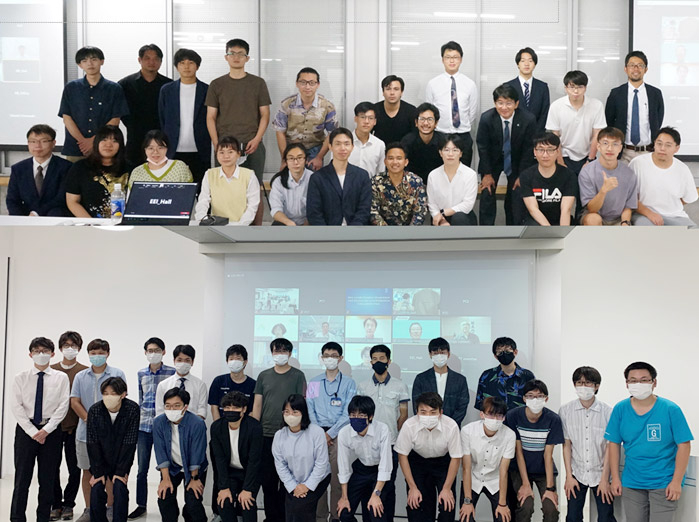
Photos of attendees at each hall
To close the session, Tokyo Tech's Ihara expressed his gratitude to all the participants. He also addressed the participating students, stating that this event was just the first step to advance their research. The next stage would be an international consortium planned for December 13 to 17 in Hawaii, where students can deepen their discussions with leading overseas researchers and InfoSyEnergy Research and Education Consortium members, and promote their research from more diverse perspectives.






